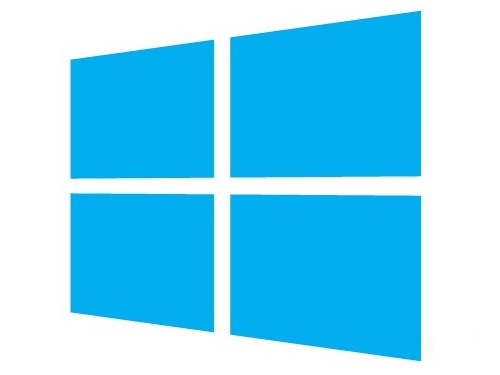Report: Global Battle Against XP Ahead for Windows 8
Windows 8 will have an even harder time dragging stubborn users away from Windows XP.
Independent web analytics company StatCounter reports that Windows 8 has a huge battle ahead on a global scale, and it's not just with Google's mobile OS, Android. Windows XP, which launched over 10 years ago in October 2001, will be one of its biggest contenders, as the popular OS still controls a nearly 30-percent usage share worldwide.
According to the report, Windows 7 held a worldwide 52.2-percent usage share in September whereas Windows XP controlled 27.64-percent. Here in the States, Windows 7 had a usage share of 49.36-percent compared to 16.42-percent for Windows XP.
What's more, Windows Vista is newer than XP, but its share usage was even lower with 7.58-percent of the global market and 11.67-percent in the United States. Over in the UK, Windows 7 had a 51.75-percent share while Windows XP fell in second with a 15.57-percent share. Windows Vista trailed in third place with a 12.95-percent share.
On Thursday Aodhan Cullen from the firm's research arm, StatCounter Global Stats, said that based on daily OS data alone, business users in particular are still reluctant to move from Windows XP despite Microsoft's urge to upgrade. Usage of Windows XP significantly peaks during the working week (Monday through Friday) while usage of Windows 7 dips in the same timeframe.
Now, enter Windows 8 with an entirely new interface. Switching between Windows XP and Windows 7 is one thing, but businesses may be reluctant to spend time and money re-training employees on how to use the new Windows platform. A survey conducted by Forrester Research earlier this month revealed that only 33-percent plan to upgrade while 40-percent haven't even considered the new OS. Ten percent plan to skip Windows 8 entirely.
"The new Windows 8 interface represents a radical overhaul for Microsoft, allowing it to enter the tablet market with the new Surface. The scale of change of the desktop experience, however, may heighten the initial reluctance of traditional business users to upgrade to this new OS," Cullen added.
Windows 8 is officially making its debut today followed by a full retail launch tomorrow, October 26.
Get Tom's Hardware's best news and in-depth reviews, straight to your inbox.

Kevin Parrish has over a decade of experience as a writer, editor, and product tester. His work focused on computer hardware, networking equipment, smartphones, tablets, gaming consoles, and other internet-connected devices. His work has appeared in Tom's Hardware, Tom's Guide, Maximum PC, Digital Trends, Android Authority, How-To Geek, Lifewire, and others.
-
jhansonxi I think many consumers perceive Win7 as a service pack for Vista. Win8 looks completely different.Reply -
apache_lives Vista and 7 are 99% the sameReply
BEFORE you vote me down blindly -- you tell me what the real difference are besides vista's more aggressive caching and colour scheme. -
aznshinobi Reply9419798 said:Vista and 7 are 99% the same
BEFORE you vote me down blindly -- you tell me what the real difference are besides vista's more aggressive caching and colour scheme.
Windows 7 feels 10x smoother -
apache_lives aznshinobiWindows 7 feels 10x smootherReply
A fresh install of Vista with $50AU worth of ram works great - go try it some time. -
may1 The statistics probably include machines used for scanners in supermarkets, airport security terminals, manufacturing control terminals etc - basically computers used to carry out "simple" (in comparison to office/home computing) operations. These enterprise machines do not require any UI interface (even an upgrade to win7) thus will probably not change its OS to win8. With how MSFT is shifting its priorities to retail customers, more of these users will shift to Open Source OS, if not stay with XP.Reply
-
apache_lives may1The statistics probably include machines used for scanners in supermarkets, airport security terminals, manufacturing control terminals etc - basically computers used to carry out "simple" (in comparison to office/home computing) operations. These enterprise machines do not require any UI interface (even an upgrade to win7) thus will probably not change its OS to win8. With how MSFT is shifting its priorities to retail customers, more of these users will shift to Open Source OS, if not stay with XP.Reply
No one comes from a Microsoft OS and goes to an open source OS.
-
digiex I will use Windows XP long as it run the programs/games I am using and my hardware still support it. I am a casual user.Reply
The only reason why XP users dip is that old XP machines had broken or scrap and new hardware were already pre-loaded with Windows 7. -
digiex I will use XP as long as it run the programs/games I use and it support my hardware.Reply
The reason for dip in XP users are either the hardware broke or it was scraped and new hardware that replaced them was already pre-loaded with Windows 7 -
shoelessinsight apache_livesVista and 7 are 99% the sameBEFORE you vote me down blindly -- you tell me what the real difference are besides vista's more aggressive caching and colour scheme.There are some fairly significant differences between Vista and 7 underneath the hood, particularly in matters of memory management. It's enough to justify 7 as a separate OS rather than a Vista service pack. But on the surface, with what the user sees, I'd agree that the two OS's are much more similar than not.Reply
Windows 8, on the other hand, is a drastic overhaul both in looks and interface. I don't think anybody would mind that, though, if it weren't for the fact that Microsoft is actively blocking people from customizing the OS back into something they're familiar with. It's that attitude that has me baffled and frustrated with 8 -- since when did Microsoft start caring how we customize our systems?
